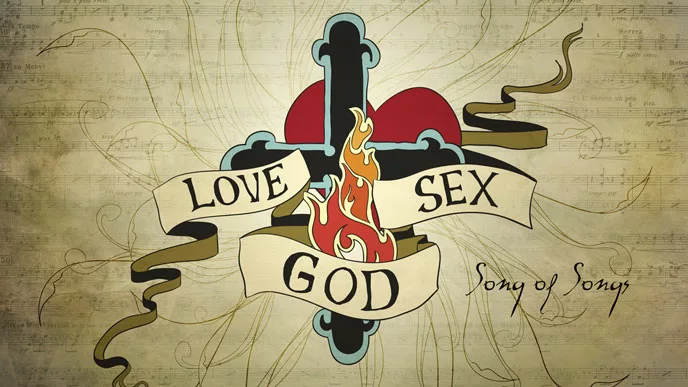 The last couple of days there has been a post circulating on the internet with a bunch of statements allegedly made by the current Pope. People are upset that a pope would say such things (although he didn´t) and what it would mean for Christianity at large. Other people are praising the Pope for these statements sharing their relief that, here we have at least one pope that makes sense.
The last couple of days there has been a post circulating on the internet with a bunch of statements allegedly made by the current Pope. People are upset that a pope would say such things (although he didn´t) and what it would mean for Christianity at large. Other people are praising the Pope for these statements sharing their relief that, here we have at least one pope that makes sense.
Now let me be clear, the Pope did not say these things, the statements are said to have been made at Vatican III a convention that has yet to happen.
So why write anything about something that is not real? Well, the contents of the Popes speech echo what is already going around in many Christian circles and for some this is fundamental Christian faith. In other Christian circles it is the ultimate heresy. So regardless of the veracity this “speech” that never happened lands in the middle of the current theological discourse.
There is no literal hellfire
“Through humility, soul searching, and prayerful contemplation we have gained a new understanding of certain dogmas. The church no longer believes in a literal hell where people suffer. This doctrine is incompatible with the infinite love of God. God is not a judge but a friend and a lover of humanity. God seeks not to condemn but only to embrace. Like the fable of Adam and Eve, we see hell as a literary device. Hell is merely a metaphor for the isolated soul, which like all souls ultimately will be united in love with God.”
This is not a novel idea and has been circulating in Christian discourse as long as there has been a Christian faith. The idea of a literal hellfire is a medieval idea based more on the works of Dante and Milton then the bible. Please note that the statement does not in any way dismiss the reality of hell but rather dispels the belief in hellfire and hell as a place of punishment, like C.S. Lewis wrote and Rob Bell, N.T. Wright and many others have echoed, hell is not a flaming furnace but the isolation from god, something that is not only an issue of the afterlife but a reality in the here and now.
Adam and Eve is a fable
Like the fable of Adam and Eve, we see hell as a literary device. Hell is merely a metaphor for the isolated soul, which like all souls ultimately will be united in love with God.
Here the article touches on the idea that the first narratives in our scriptures are not historical facts but mythical narrative written to teach us about who god is, what it means to be human and what our relationship to the divine is and can be. The use of the word fable is apt as we indeed have a talking snake in Genesis 3. I will return to the idea of biblical authority further down in the article. We need to at least face the fact that our two creation stories in Genesis do not line up neatly and cannot both be literally true. We would do well to recognise that the creation myths of the Judeo-Christian scriptures are not factual historical documents and does not answer the question “how?” but rather tries to give us a hint at “why?”
God changes constantly
“God is changing and evolving as we are, For God lives in us and in our hearts. When we spread love and kindness in the world, we touch our own divinity and recognize it.
The idea of a god that changes and evolves is very much presented in scripture in fact it is more present than the idea of the “changeless one”. As evangelicals we are prone to say things like it´s not a religion it´s a relationship as we believe in the idea that we can have a personal and intimate relationship with Jesus. Furthermore we believe that god is love and love also implies relationship. How can we believe in a relational god if we do not believe that both parties in this relation can change. Only death is static, changeless. Life is constant change and growth, why can this not be true of god as well? How can we at the same time argue for a literal reading of scripture and then ignore the countless passages in the bible where god changes gods mind and gods plans?
All religions are true
“All religions are true, because they are true in the hearts of all those who believe in them. What other kind of truth is there? In the past, the church has been harsh on those it deemed morally wrong or sinful. Today, we no longer judge. Like a loving father, we never condemn our children. Our church is big enough for heterosexuals and homosexuals, for the pro-life and the pro-choice! For conservatives and liberals, even communists are welcome and have joined us. We all love and worship the same God.”
I think this is the most upsetting statement of all the ideas presented in this short text. And while I agree in principle I would have liked the statement to read “there is truth in all religions”. C.S. Lewis famously said “Just because we are right, does not mean that everybody else is wrong”. To believe that Christian faith and doctrine is the only truth is a fallacy as there are countless variations of Christian belief and various different truth claims. If there was only one truth and Christians possessed it, then all Christian churches would preach and teach the same thing. However the reality is that we are sometimes so varied in our description of this truth that we may as well be different religions. I think we need to be at least a little suspicious when we believe that there is only one truth and we (as in our little group of Christians) have it. The text actually makes clear that the church’s mission or mandate is to include all, including the ones that have a different take on truth than us.
The Authority of the Bible
The Bible is a beautiful holy book, but like all great and ancient works, some passages are outdated. Some even call for intolerance or judgement. The time has come to see these verses as later interpolations, contrary to the message of love and truth, which otherwise radiates through scripture. In accordance with our new understanding, we will begin to ordain women as cardinals, bishops and priests. In the future, it is my hope that we will have a woman pope one day. Let no door be closed to women that is open to men!
In my opinion this is the key issue, the question that we all come back to over and over again. If there is one question that the church must face, wether Catholic or Protestant, Orthodox, evangelical or emergent, it is this one. The place of the scriptures in our faith community. If we cannot re-evaluate how we have historically interpreted some passages to be literal and others not, then we can never as a church or faith community grow. In many conservative circles we have come to worship our tradition (and/or the bible) rather than god. And we state blindly that god does not change neither does our understanding of scripture. The reality looks different, we have time and time again revised our understanding of scripture and tradition and changed how and why we act and believe in certain ways. In some liberal circles we have gone the other way and tossed out all tradition and historical understanding, changing things that may not have needed revision, just to make a clean break with the old.
It is my opinion that we need a far more sensitive and humble approach where we tread softly, recognise that we have always interpreted our scriptures and our faith through cultural lenses, some good and some bad. It must be the work of every generation to return to these scriptures and traditions and carefully re-evaluate and re-imagine what it is to be a follower of the way in our time and place.
So whether Pope Francis said these things or not is rather irrelevant (at least outside of Catholic circles), I for one would have loved to hear this speech made by a Pope or any other religious leader. We need this conversation in all of Christendom, and we need to be able to converse with love and charity, humility and grace.
He has told you, O mortal, what is good;
and what does the Lord require of you
but to do justice, and to love kindness,
and to walk humbly with your God? (Micah 6.8 NRSV)






Patrik, thanks for opening this conversation and treating it with such humility and understanding. As one who has been bridging the gap between evangelicals and Catholics, it is heartening to see the convergence of so much discussion as Francis begins to speak…or not speak, as this case may be.